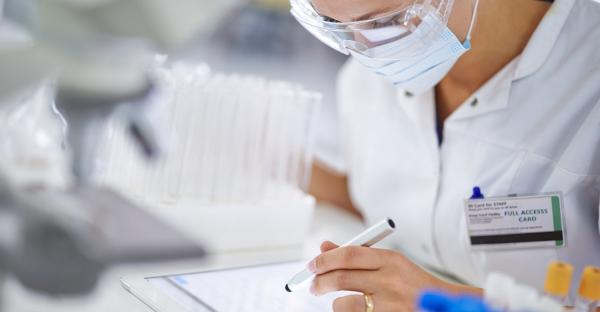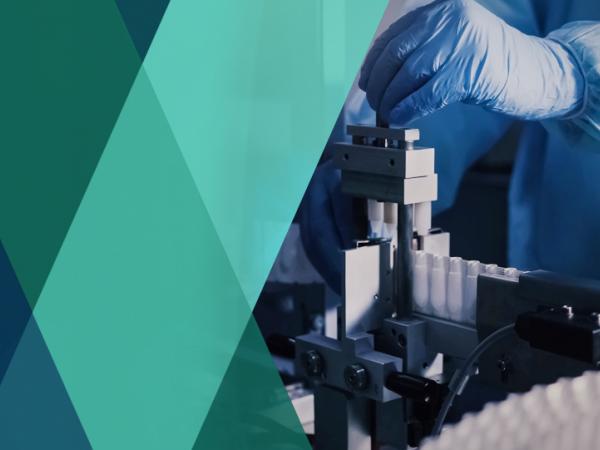
FDA Regulatory
Viewpoints
Filter by:
FDA in Flux — July 2025 Newsletter
July 9, 2025 | Article | By Joanne Hawana, Benjamin Zegarelli
The July 2025 edition of FDA in Flux highlights five significant developments shaping the regulatory landscape for medical, life sciences, and consumer product sectors.
A Texas Federal Court Sides with Laboratories, But There May Be Unintended Consequences for FDA
April 10, 2025 | Blog | By Benjamin Zegarelli, Joanne Hawana
The obvious result of the legal shootout between the U.S. Food & Drug Administration (FDA) and clinical laboratory trade associations, the American Clinical Laboratory Association and the Association for Molecular Pathology, in the Eastern District of Texas to determine whether the Federal Food, Drug, and Cosmetic Act (FD&C Act) permits the agency to regulate laboratory developed tests (LDTs) is a complete victory for clinical laboratories. The U.S. district judge’s decision, issued on March 31, 2025, vacated the May 2024 final rule through which FDA sought to specify that LDTs are agency-regulated in vitro diagnostic products (IVDs) and to describe a plan for phasing-in enforcement of existing medical device regulations for such products over four years (see our previous posts on the LDT final rule here and here). In adopting the plaintiffs’ arguments wholesale, however, the judge created some incongruities in the relevant regulatory frameworks, as well as several quandaries for FDA and the clinical laboratory industry going forward. These inconsistencies could have greater consequences down the road if the Trump administration decides not to appeal the ruling.
FDA’s Backup LDT Enforcement Method: Specimen Collection Kits
March 13, 2025 | Blog | By Benjamin Zegarelli, Joanne Hawana
We have written at length about the U.S. Food and Drug Administration’s (FDA’s) actions to promulgate regulations specifying the agency’s authority to regulate laboratory developed tests (LDTs) as medical devices and to phase out the agency’s historical approach of enforcement discretion towards such tests (see here, here, here, and here). However, one infrequently considered regulatory compliance issue for LDTs is their reliance on separate specimen collection devices or convenience kits. All LDTs require the use of some form of biological specimen, such as blood or saliva, which may be collected by health care professionals in a clinical setting or by consumers in their homes before being submitted to a laboratory for testing.
Five Observations from FDA’s Responses to Comments in the Final Rule on LDTs
July 10, 2024 | Blog | By Benjamin Zegarelli
Now that the final rule on laboratory developed tests (LDTs) has been available for over a month and the stages of the enforcement discretion phaseout process and the Food and Drug Administration’s (FDA’s) newly proposed policies for continuing limited enforcement discretion for certain types of LDTs have been thoroughly described and dissected (including by us in our previous post), it’s high time to dig into FDA’s perspectives on the comments it received on the proposed rule.
FDA’s Final LDT Rule Is Here, and the Changes Show the Agency Is Serious and Actually Listening to Stakeholders
May 6, 2024 | Blog | By Joanne Hawana, Benjamin Zegarelli
The Food and Drug Administration (FDA) published its final rule on laboratory developed tests (LDTs) in the Federal Register on May 6, marking a watershed moment in the agency’s arduous decade-plus-long journey toward winding down its historical enforcement discretion posture for LDTs. But FDA’s crusade is far from over. It will have much to do to implement the four-year phase-out period described in the final rule and those efforts may be delayed by litigation seeking to enjoin implementation of the rule altogether. While we wait for the litigation shoe to drop, let’s take a look at what the final rule says and the changes FDA made in these highly significant policy decisions since the Notice of Proposed Rulemaking was published on October 3, 2023 (see our previous posts on the NPRM here and here).
FDA Warning Letter Is a Stark Reminder That If You Claim Your Product Is RUO, It Has to Be RUO
April 3, 2024 | Blog | By Joanne Hawana, Benjamin Zegarelli
In vitro diagnostics, or IVDs, have a somewhat unique position among the gamut of products that the Food and Drug Administration (FDA) oversees and regulates on behalf of the U.S. public. IVDs are classified as medical devices and include “reagents, instruments, and systems intended for use in diagnosis, including determining the state of health, through the collection, preparation, and examination of specimens taken from the human body.” Unlike human drug and non-IVD device products, which generally must be authorized for a specific medical use prior to commercialization, IVD products may be sold for certain scientific research studies without FDA authorization, but such IVD products may not be sold for clinical diagnostic use.
Health Law Diagnosed – A Discussion on the Regulatory Requirements for LDTs
March 7, 2024 | Podcast | By Bridgette Keller, Joanne Hawana, Benjamin Zegarelli
In this episode of Health Law Diagnosed, host Bridgette Keller is joined by Mintz Health Law attorneys Joanne Hawana and Benjamin Zegarelli to discuss the FDA’s long-awaited proposed rules that actively regulate laboratory developed tests (LDTs).
FDA Faces Critical Deadlines in 2024, Even Without an Election Looming
March 6, 2024 | Blog | By Joanne Hawana
The American public knows that 2024 is a critical election year, with the next race for the presidency in November expected to be another face-off between President Biden and former President Trump. What the majority may not know quite as well, however, is how many important regulatory programs the Food and Drug Administration (FDA) has tasked itself with completing sometime this year. Given the centrality of much of FDA’s work to the average American consumer and all users of health care services, not to mention the various business stakeholders whose operations can be shaped in part by policy decisions executed by the agency, this blog post will preview upcoming milestones that FDA is expected to meet in 2024.
2023: Another Year Chock Full of Challenges for FDA
December 20, 2023 | Blog | By Joanne Hawana, Benjamin Zegarelli
In 2023, the FDA navigated challenges while achieving significant public health milestones. Member Joanne Hawana and Of Counsel Benjamin Zegarelli highlight key takeaways from the year, addressing multifaceted issues such as CBD regulation, the overhaul of in vitro clinical tests, and the management of manufacturing failures. These pivotal topics underscore the FDA’s proactive approach to evolving healthcare regulations and technological advancements.
The LDT Debate: Unpacking Public Responses to FDA’s Proposed Rule
November 20, 2023 | Blog | By Benjamin Zegarelli, David Gilboa
The U.S. Food and Drug Administration (FDA) recently released a proposed rule that would seek to regulate laboratory developed tests (LDTs) as medical devices under the Federal Food, Drug, and Cosmetic Act (FDCA). This rule could reshape the landscape of LDTs and, as expected, has generated substantial attention and feedback from the public, with both supportive and negative comments flooding in. We previously provided a summary of the proposed rule and FDA’s lengthy justification for it here. In this blog post, we will examine some of the key arguments presented in the public comments submitted to Docket FDA-2023-N-2177, as well as public statements published by industry trade associations.
The Other Shoe Drops: FDA Withdraws 30-Year-Old Homeopathic Drug Enforcement Policy and Puts Industry on Notice of Further Regulatory Pressure
October 25, 2019 | Blog | By Joanne Hawana, Benjamin Zegarelli
FDA Updates Digital Health Guidances to Align with 21st Century Cures Act
October 9, 2019 | Blog | By Benjamin Zegarelli
HHS Files Brief in D.C. Circuit Supporting Drug Pricing Transparency Rule
September 30, 2019 | Blog
GAO Report Sheds Light on Drug Manufacturers’ Expanded Access Programs
September 17, 2019 | Blog | By Joanne Hawana
Telemedicine Platform Recalled Over Failure to Obtain Pre-Market Clearance or Approval from FDA
August 29, 2019 | Blog | By Benjamin Zegarelli, Ellen Janos
HHS Drug Pricing Disclosure Rule: Chance at a Renewed Life Following District Court Appeal?
August 26, 2019 | Blog | By Joanne Hawana
Congress Looking to Streamline CBD Drug Research
August 14, 2019 | Blog
In Policy Reversal, HHS and FDA Propose Plan to Import Foreign Drugs
August 8, 2019 | Blog | By Benjamin Zegarelli
Three Things to Learn from Delaware Supreme Court’s Opinion on Board of Director Oversight Duties (Marchand v. Barnhill)
August 6, 2019 | Blog
FDA Invites Compounding Outsourcing Facilities' Comments to Understand Industry Challenges and Opportunities
July 29, 2019 | Blog
Software Update: The Latest on FDA’s Pre-Cert Pilot
July 22, 2019 | Blog
Federal Judge Strikes Down HHS Drug Pricing Disclosure Rule
July 9, 2019 | Blog
Pharmaceutical Companies Object to HHS Drug Pricing Disclosure Rule
July 1, 2019 | Blog | By Joanne Hawana
OIG Report Finds a Small Percentage of Hospitals Do Not Obtain Compounded Drugs from FDA-Registered Outsourcing Facilities
June 17, 2019 | Blog | By Joanne Hawana
Navigating the Legalization of Hemp under the 2018 Farm Bill Involves Changes to the Issuance of Federal Trademarks in the Cannabis Industry
June 11, 2019 | Blog | By Susan Neuberger Weller
Cannabis-Derived Ingredients in FDA-Regulated Products: More Questions than Answers at FDA’s May 2019 Public Hearing
June 3, 2019 | Blog | By Joanne Hawana
FDA Ratchets Up Pressure on Homeopathic Drug Manufacturers
May 23, 2019 | Blog | By Benjamin Zegarelli
In 2019 so far, FDA has issued Warning Letters to eleven separate homeopathic drug manufacturers, including the five letters referenced above. All of the Warning Letters, except one, cite observations from inspections and focus on cGMP and quality violations at the manufacturing facilities, including contamination and varying amounts of active ingredients, that could lead to consumer harm.
FDA Finalizes Guidance on Biosimilar Interchangeability, Reiterates Case-by-Case Approach to Data Requirements
May 16, 2019 | Blog | By Joanne Hawana
Update on FDA’s Comprehensive Regenerative Medicine Policies and Enforcement Activities
April 29, 2019 | Blog | By Joanne Hawana
FDA and Outgoing Commissioner Scott Gottlieb Open Up About Cannabis and CBD Regulation
April 23, 2019 | Blog
Explore Other Viewpoints:
- Data Centers & Digital Infrastructure
- AI: The Washington Report
- Antitrust and Federal Regulation
- Appellate
- Arbitration, Mediation & Alternate Dispute Resolution
- Artificial Intelligence
- Awards
- Bankruptcy & Restructuring
- California Land Use
- Cannabis
- Class Action
- Complex Commercial Litigation
- Construction
- Consumer Product Safety
- Corporate Governance (ESG)
- Cross-Border Asset Recovery
- DEI Legal Developments
- Debt Financing
- Direct Investing (M&A)
- Diversity
- EB-5 Financing
- Education & Nonprofits
- Employment
- EnforceMintz
- Environmental (ESG)
- Environmental Enforcement Defense
- Environmental Law
- Environmental, Social, and Corporate Governance (ESG)
- FDA Regulatory
- False Claims Act
- Federal Circuit Appeals
- Financial Institution Litigation
- Government Law
- Growth Equity
- Health Care
- Health Care Compliance, Fraud and Abuse, & Regulatory Counseling
- Health Care Enforcement & Investigations
- Health Care Transactions
- Health Information Privacy & Security
- IP Due Diligence
- IPRs & Other Post Grant Proceedings
- Immigration
- Impacts of a New US Administration
- Insolvency & Creditor Rights Litigation
- Institutional Investor Class Action Recovery
- Insurance & Financial Services
- Insurance Consulting & Risk Management
- Insurance and Reinsurance Problem-Solving & Dispute Resolution
- Intellectual Property
- Investment Funds
- Israel
- Licensing & Technology Transactions
- Life Sciences
- Litigation & Investigations
- M&A Litigation
- ML Strategies
- Managed Care
- Medicare, Medicaid and Commercial Coverage & Reimbursement
- Mergers & Acquisitions
- Patent Litigation
- Patent Prosecution & Strategic Counseling
- Pharmacy Benefits and PBM Contracting
- Portfolio Companies
- Privacy & Cybersecurity
- Private Client
- Private Equity
- Pro Bono
- Probate & Fiduciary Litigation
- Products Liability & Complex Tort
- Projects & Infrastructure
- Public Finance
- Real Estate Litigation
- Real Estate Transactions
- Real Estate, Construction & Infrastructure
- Retail & Consumer Products
- Securities & Capital Markets
- Securities Litigation
- Social (ESG)
- Special Purpose Acquisition Company (SPACs)
- Sports & Entertainment
- State Attorneys General
- Strategic IP Monetization & Licensing
- Sustainable Energy & Infrastructure
- Tax
- Technology
- Technology, Communications & Media
- Technology, Communications & Media Litigation
- Trade Secrets
- Trademark & Copyright
- Trademark Litigation
- Unified Patent Court (UPC)
- Value-Based Care
- Venture Capital & Emerging Companies
- White Collar Defense & Government Investigations
- Women's Health and Technology











